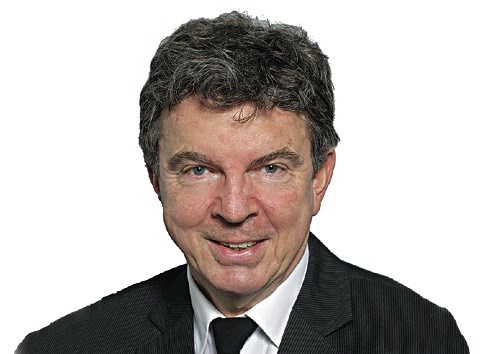Cabinet ministers on trade missions to faraway places inevitably get amped up about the importance of their visits.
All the meetings are “key meetings.” All the contacts made are “valuable new contacts.” All the memorandums of agreement are “important.”
Sometimes real things flow from the visits. Other times the politicians come home with little more than some souvenirs.
But based on cabinet minister Rich Coleman’s reports back this week from South Korea and China, there is a feeling the potential for liquefied-natural-gas exports to Asia is as real as many have been saying.
His visit won’t seal any deals or advance any of the proposals much.
And the biggest factor — the price — will be set in the Asian markets, so it’s mostly outside of B.C.’s control.
But the reception B.C. has been getting will heighten enthusiasm for the major plays being made or contemplated here.
Reporting on a conference call from Beijing on Friday, the natural gas development minister said it has been a “remarkable” few days.
“We’ve had some of the most positive meetings we’ve ever had on LNG.”
He has been at conferences where thousands of upper-level executives from all over are talking LNG and he has been hearing serious interest in B.C. from some of them.
Executives from two major Chinese interests told him they are very committed to looking for significant LNG tonnage from B.C.
Coleman said it reaffirmed the fact B.C. is considered a primary new player, based on competitive advantages and the work on getting the fundamentals right.
“We’re on the right track.”
Asked about the skilled-workers situation — one of the biggest pieces of the puzzle companies and governments are putting together — Coleman said Asian officials are comfortable with efforts being made. They are confident Canada can deliver the skilled workforce that’s needed.
Oil pipelines are obviously getting a lot of attention, but Coleman left the impression Friday they are secondary.
The focus of the B.C. government is on LNG. The province’s five conditions for oil pipelines are out there and need to be addressed. Coleman went so far as to equate the May election with a referendum on the conditions, which won approval.
But in the meantime, B.C. is more interested in LNG. So are Korean and Chinese interests.
“It’s very clear they are bullish on their opportunities and plan to pursue them aggressively.”
The growth in the market is dramatic and it could be substantially bigger than some are predicting. Coleman said that attitude will “stabilize” the LNG situation in B.C.
The final go or no-go investment decisions could be expected in the third quarter of 2014, he said, although some would like to commit earlier if possible.
Coleman — in Seoul at the time — said a council of deputy ministers is looking at the big-picture implications. One corridor for several pipelines — or one pipeline branching off to multiple locations — has been talked about, he said. There was also a private meeting with First Nations prior to the election about the overall scheme.
There are still a host of factors that could derail the LNG vision. The increase in greenhouse gas emissions will likely force B.C. to default on the legislated reduction target. That’s a problem. A global supply glut could erase the premium price for gas in Asia, on which the whole enterprise is founded. Some First Nations could balk, which would be problematic.
And other places in the world planning exactly the same thing could present better deals. Coleman acknowledged that most of the international players now involved in B.C. have other projects elsewhere.
The companies are keen on B.C., “but they also know they need to have diversified markets; they don’t want to be captured in one location where somebody could change the fundamentals in such a way they would get caught.”
So LNG investors are likely saying the same encouraging things to other visiting officials that they said to Coleman.



